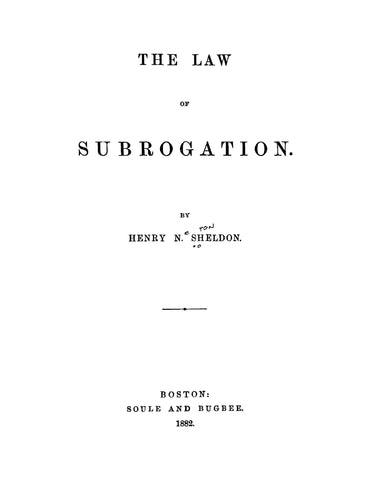
The Law of Subrogation
by Henry N Sheldon. 1882. 327p
The doctrine of subrogation allows a party who pays a debt on behalf of another to assume the rights of the creditor against the debtor. This principle is particularly relevant in cases involving mortgages, where a purchaser who assumes a mortgage and subsequently fails to make payments can be held accountable by the mortgagor, enabling the mortgagor to enforce the mortgage against the property.
Subrogation is fundamentally rooted in equity, compelling the party who is ultimately responsible for the debt to fulfill that obligation. This equitable principle ensures that the burden of the debt does not unfairly fall on the party who intervened to pay it, thereby promoting fairness in financial transactions.
Moreover, the application of subrogation extends beyond the realm of suretyship and does not necessitate privity between the involved parties. This broad applicability underscores the importance of subrogation in various legal contexts, allowing for a more just resolution of financial obligations and rights among parties.
